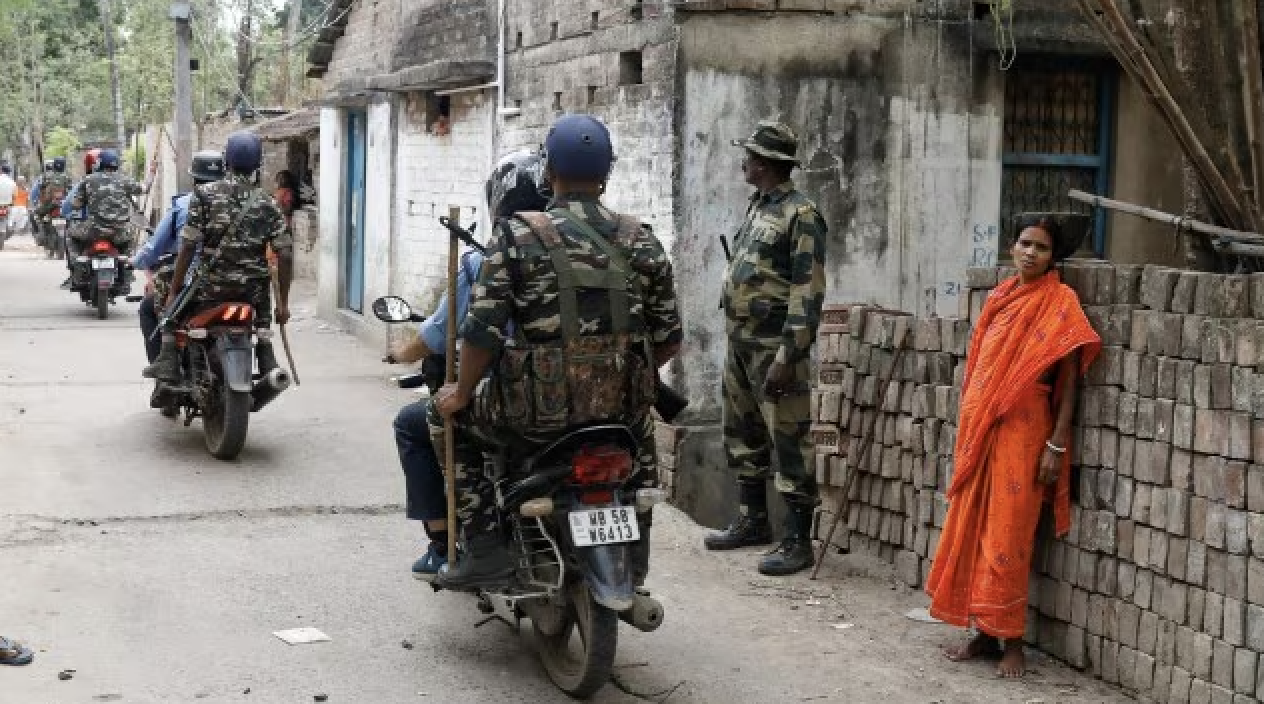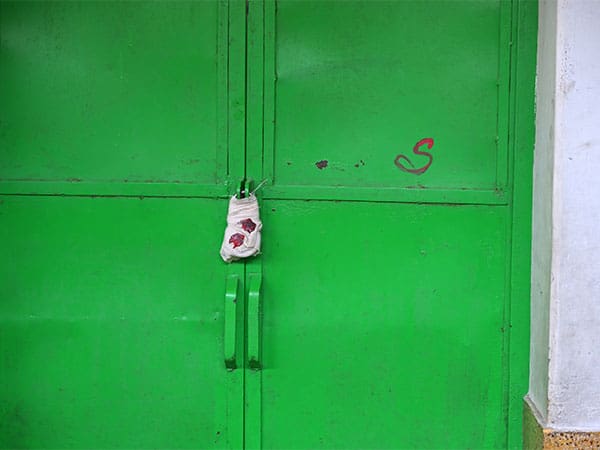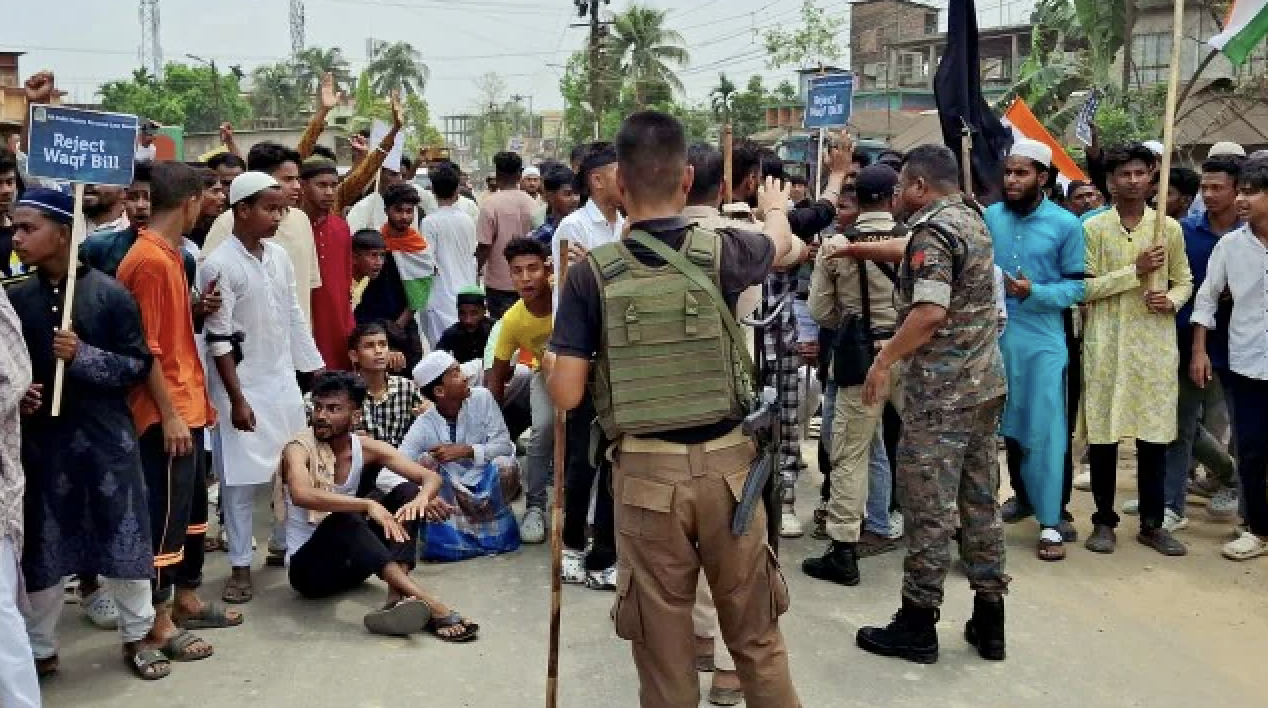
Citizens for Justice and Peace (CJP), has approached the National Commission for Minorities (NCM) to take cognisance of the Islamophobic statements made by Yati Narsinghanand Saraswati, and his endeavour to provoke young Hindu men to act against Muslims.
After one such public address by Yati propagating hate against Muslims went viral on social media, CJP complained to the Minorities Commission seeking them to intervene in the matter and take appropriate action. In a particularly derogatory reference, he has said that all workers like plumbers, electricians, delivery boys, vegetable vendors are Muslims who enter Hindu homes, befriend Hindu women who then fall prey to the ‘Jihadis’.
CJP is dedicated to finding and bringing to light instances of Hate Speech, so that the bigots propagating these venomous ideas can be unmasked and brought to justice. To learn more about our campaign against hate speech, please become a member. To support our initiatives, please donate now!
The complaint has highlighted how such statements tend to not only create a prejudice against honest, hard-working people from the Muslim community who might be working as plumbers, electricians etc, but also have the distinct possibility – given the political and social capital enjoyed by the speaker – to cause prejudice and adversely affect their livelihood. The pandemic is the most appropriate example where mass prejudice led to ostracisation of Muslims wherein people refused to accept deliveries from Muslim shop owners or vegetable/fruit vendors and in many instances, they were publicly shamed and abused.
In the impugned public address, Yati Narsinghanand Saraswati also makes deplorable statements like most prostitutes are Hindu women, and they are the ones who fall in love with ‘Jihadi Musalman’ and get blackmailed by their objectionable pictures. The complaint states that this is derogatory towards all women, especially to those sex workers who come from different sections of the society, facing different circumstances with completely different realities from what people like Yati assume of them. “Not only does this non-factual and selective utterance creates a specific animosity against Muslim men; but this hate and inciteful speech has the potential to target Muslims all over, because it reaches lakhs of people over the internet,” states the complaint.
He also repeatedly calls out “napunsakta” (impotency) or “heejrapan” (equivalent to derogatory word eunuch) as a weakness in Hindu men, thus instigating them to resort to unspeakable actions that could fuel crimes against women, irrespective of their community. CJP’s complaint has also listed out other deplorable statements made by Yati like:
Women go to colleges and start looking for boyfriends.”
If a girl falls in love with a Muslim boy, she has no threat from Hindus or Muslims, because Hindus don’t have the guts to say anything against Muslims.”
Muslims want to share our Hindu women amongst themselves.”
CJP has contended, “A lasting damage that such speeches widely heard and relayed cause is to public discourse and the social climate. Once into public discourse, such sentiments –stigmatisation and demonization- get legitimised within society as they are shared over messaging platforms. Their actual reach is unfathomable and their effect is both indiscriminate and unsurmountable. Such provocation could either lead to isolated incidents of violence, where people tend to take law in their own hands or could turn into one colossal incident of organised violence aimed at a community, merely because such inciteful videos are available on a public platform for viewing.”
Another focus point of CJP’s complaint is the overall hate ecosystem where Dasna Temple’s chief priest Yati has created a breeding ground for manipulating politically-motivated Hindus to act against Muslims and disrupt harmony. His disciples have been pulled up by the Police on grounds of law-and-order problems, time and again, and it seems like Hindu men are being systematically radicalised through sustained utterances of men like Yati who calls these men “mere bachche” (my children).
CJP has cited examples of his disciples like Shringi Yadav, Vikas Sehrawat, Kunal Sharma, Sukhdev Sahdav and Rambhagat Gopal. Shringi was arrested (now out on bail) for assaulting a minor Muslim boy, Asif, for entering the temple to drink water in March. Vikas (who is also out on bail) was arrested for uploading an incendiary video against politician Alka Lamba and calling for violence against Muslims in Ghaziabad, Uttar Pradesh. CJP has also complained to NCM about Vikas alias Malik Sehrawat. Kunal Sharma’s name had emerged in the infamous “Sulli Deals” case where he allegedly put-up derogatory posts against Muslim women to “auction them”. In this despicable and clearly criminal exercise, he shared numbers of Muslim women on social media and named it “Muslim Ladki Patao Abhiyan” (programme for wooing Muslim women). Delhi Police has filed an FIR in the matter, but no arrest has been made yet.
Furthermore, Rambhagat Gopal, also known as the “Jamia shooter” who shot at an anti-CAA protester outside Jamia Millia Islamia on January 30, 2020, is another follower of Yati, who was arrested for hate speech and instigating the mob to abduct girls of particular religious community (Muslims). CJP has cited such examples to highlight that all these men have a reputation of perpetuating hate and don’t fear the law, despite being arrested. One thing that is common amongst all these men is Yati Narsinghanand Saraswati!
Noting that NHRC has also registered a case against Yati, CJP’s plea reads, “We humbly urge the Commission to not only see this as an isolated incident or Yati as a lone wolf. This is not just about only indulging in offensive hate speech, as this kind of “organised activity” encompasses acts that are insulting, derogatory, discriminatory, provocative or even such that it incites and encourages use of violence or results in violent backlashes. We are trying to highlight how Yati and his many known and unknown disciples are bending and breaking the law.”
The complaint has listed the violation of various provisions under the Indian Penal Code pertaining to Hate Speech and also the constitutional provision of Article 15 of the Constitution of India that prohibits citizens from discriminating on the grounds of religion, race, caste, sex etc.
We have reiterated, “The community subjected to this form of vicious hatred has been transformed from being persons to objects. This dehumanization has resulted in calls for elimination of the community and the same is nothing short of a call for genocide. The call to genocide is a violation of the right to life and personal liberty of an entire community under Article 21 of the Constitution, and needs to be dealt with strictly. The calls for social and economic boycott being made are the precursors to genocide. Hate speech which repeatedly dehumanizes an entire community, makes them targets of vigilante violence.”
Lastly, CJP has sought for the Commission’s involvement in taking cognisance of their complaint and carrying out a thorough inquiry into such incidents under the relevant sections of the National Commission for Minorities Act, 1992.
This story first appeared on cjp.org.in






